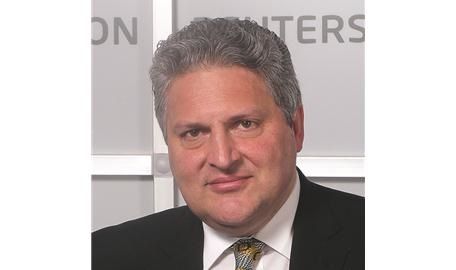WHAT SHOULD WE surmise, I wonder, from that rather odd-looking joint statement from UK finance minister George Osborne and international investment bank heads on London as a world-leading financial centre?
Well, the first thing that stands out is that it should have read “statement from the Chancellor and US investment banks”, given that it was really about Bank of America Merrill Lynch, Citigroup, Goldman Sachs, JP Morgan and Morgan Stanley. Only the bizarre inclusion of Standard Chartered prevented it from being a US clean sweep.
I imagine Osborne only invited Bill Winters because a) he was around and could make the shotgun meeting; b) Osborne knows Winters from his days on the Independent Commission on Banking; c) Bill is American, which kind of fitted the vibe. But it’s still bizarre because even though StanChart doesn’t do much business in the UK, it’s a UK bank. (And while we’re at it: it’s hardly a leading investment bank).
If StanChart was included, why not Barclays (which also has an American boss) or HSBC? And while it’s understandable that Osborne might not have wanted the in-the-circumstances maybe slightly compromised German or French investment banks at the table to rain on his parade – even though SocGen has said publicly it remains committed to London – what about the Gnomes of Zurich, the Japanese, Australian or Canadian banks, many of whom maintain sizeable London campuses?
Perhaps Osborne is making an altogether different statement: that he’s been following the soap operas unfolding over the past three or four years at Credit Suisse, UBS, Deutsche Bank and others (perhaps even Barclays and HSBC) and has concluded that their current direction of travel means they have no future as international investment banks given the downsizing of their geographical, business and staff footprints. (OK I doubt that …)
As well as Winters, the meeting was attended by IB heavyweights Michael Sherwood of Goldman Sachs (still smarting no doubt from his grilling by MPs on the BHS debacle), Rob Rooney of Morgan Stanley, JP Morgan’s Viz Raghavan, and Alex Wilmot-Sitwell of BAML. But where, I ask, was Jim Cowles, Citi’s EMEA boss? The statement was published at 11.48am but Cowles was only added to the list of signatories at 4.57pm.
He didn’t attend the meeting so where was he in the intervening period? Or did it take the Chancellor’s attack dogs five hours-plus to browbeat him into signing? I put this conundrum to the mighty Citi PR machine, hoping they’d tell me he was at Wimbledon or something. Alas, the truth is much more prosaic: he’s in the US, I’m told. Well you can’t blame a man for trying to whip up a conspiracy theory.
SO WHAT OF the statement? It was collegiate and spoke a lot about working together: to meet the economic challenges thrown up by the exit vote; to identify potential new opportunities “so that Britain remains one of the most attractive places in the world to do business”; and to build on the UK’s attributes “with a common aim to help London retain its position as the leading international financial centre”.
But for all the hoopla, it was a frankly pointless exercise and a load of old nonsense. It was as singularly pointless and nonsensical as the statement from the Chancellor and leading British banks and building societies a couple of days prior, on maintaining support for households and businesses (supposedly and laughably assisted by the removal of the CCB). That statement was signed by Barclays, HSBC, Lloyds, Metro Bank, Nationwide, RBS, Santander and Virgin Money.
If the finance minister asks you to tea soliciting your written support, how can you in all conscience not sign with a smile? But then again these things are hardly binding so what’s the downside? The way forward is unclear but let’s be honest: banks exist to make money first and deal with allegiances later, particularly so international investment banks.
For all of the grandiloquent statements coming out of left, right and centre, there’s no getting away from the fact that the UK is in a political funk following the referendum vote and the economy is looking mightily vulnerable. There’s clearly no plan and much of the front-line Leave camp has deserted the fray like rats leaving a sinking ship. It’s a God awful mess.
IF EXIT FROM Brexit is off the table (is it … ?) all we can do is hope that wise heads prevail. On that exact point, I moderated a fascinating IFR panel session on July 7 on “The Impact of Brexit on Capital Markets Regulation” with a group of senior lawyers and consultants. It was a great session that made me feel a lot more sanguine about the road ahead, notwithstanding there’s a considerable amount of uncertainty.
While the answer to every question at this point is “it depends”, mulling over nominally realistic options around financial services passporting, regulatory grandfathering, legal equivalence, third-country options (under MiFID II), maintaining some sort of constructive relationship with the EU institutions, being realistic about where London as a financial centre comes out in all of this, being flexible and maintaining optionality in a more measured cycle of negotiations denuded of populist grandstanding at the very least offers grounds for sensible outcomes.
If only we could get politicians to butt out of the process…
